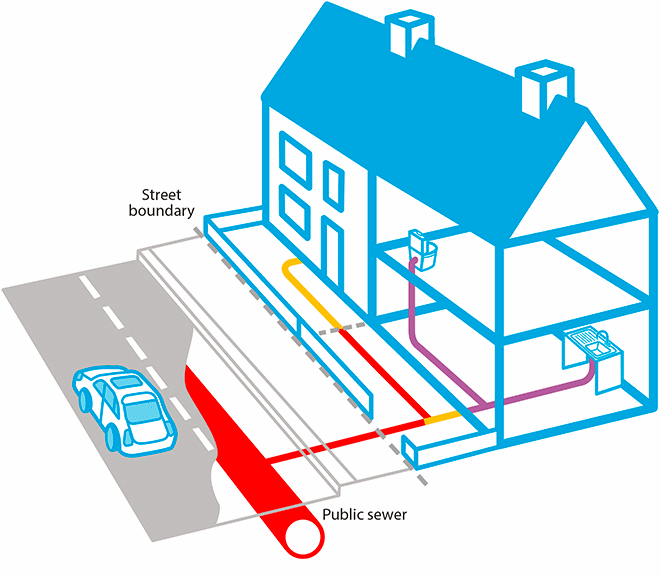Sewer flooding
Number of incidents where sewage overflowed or flooded into a house
Sewer flooding is unpleasant and distressing and water companies spend millions every year to prevent it from happening. There are also steps you can take to reduce the risk of a sewer flood in your house or garden.
Source: Water UK; England and Wales, Apr 2023 - Mar 2024
Sewer flooding - houses
Even one house flooded with sewage is one too many and water companies are working to reduce sewer flooding. Companies have invested many millions to reduce the number of times this happens and customers are 8 times less likely to suffer sewer flooding than they were in the early 1990s.
Close PanelNumber of incidents where sewage flooded areas of private land or gardens
Source: Water UK; England and Wales, Apr 2023 - Mar 2024
Sewer flooding – gardens and private land
When sewage floods into gardens and on private land, it is unpleasant and distressing. Companies have invested many millions of pounds to reduce the likelihood of this happening. But even one garden flooded with sewage is one too man, and water companies are working to further reduce sewer flooding.
Close PanelWhat not to flush down the toilet
When a sewer or drain blocks, it can cause flooding in people’s homes. Blockages can also lead to environmental pollution, damaging rivers and beaches. Wet wipes (including those labelled as “flushable”, unless they are Fine to Flush), disposable nappies and sanitary products are the main items that cause problems.
What to do with sanitary items
Although it may be convenient to put sanitary products down the toilet, they can get snagged in the sewer, build up and cause sewer flooding. To avoid this happening, our advice is to bag and bin these products. By doing so you will help reduce the cost of unblocking public sewers and drains, and help keep your sewerage bill down.
Avoid blockages in the kitchen
Kitchen oil, fats and grease can also lead to major blockages. These should not be put down the drain. Instead we recommend:
• pour your oils, fats and grease into a can or bottle, allow it to harden and then put it into your bin.
• ask your sewerage company for a ‘fat trap’ – these are provided free of charge.
• mixed with seeds and nuts, fats can be put into your garden as a bird feeder.
Use of strainers in your sink
Avoid putting food scrapings down the sink, regardless of what it says on the packaging. Instead, put it in the bin.
Drains and sewers - which do you own?
You are responsible for the drains (in purple) that takes sewage away from your property up to the boundary or to where it joins (in yellow) with pipework from another property. The pipes in red are owned by water companies.

- pipes that takes sewage away from your property up to the boundary (your responsibility)
- pipes that join with pipework from another property (your responsibility)
- pipes owned by water companies (water company's responsibility)
Do you have a question about sewer flooding?
Please contact your local water company. Don’t know who your supplier is? Find out here